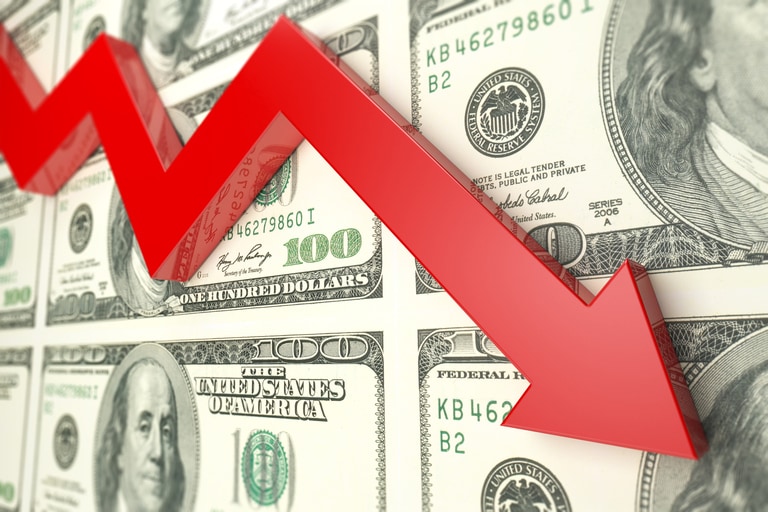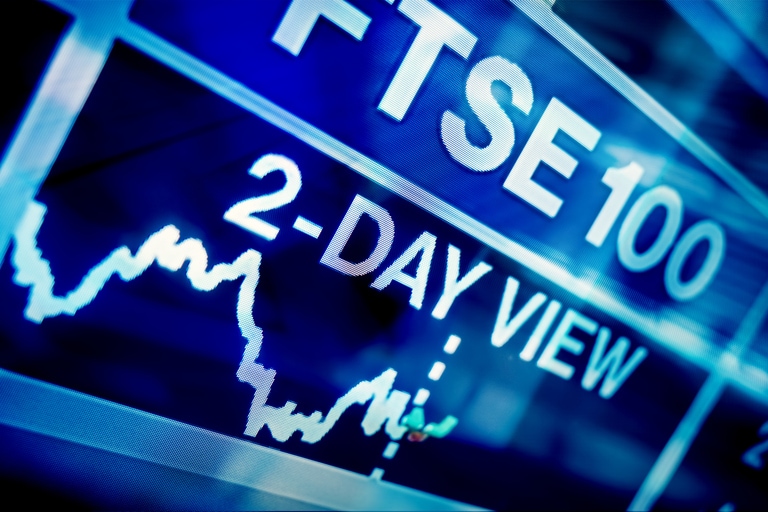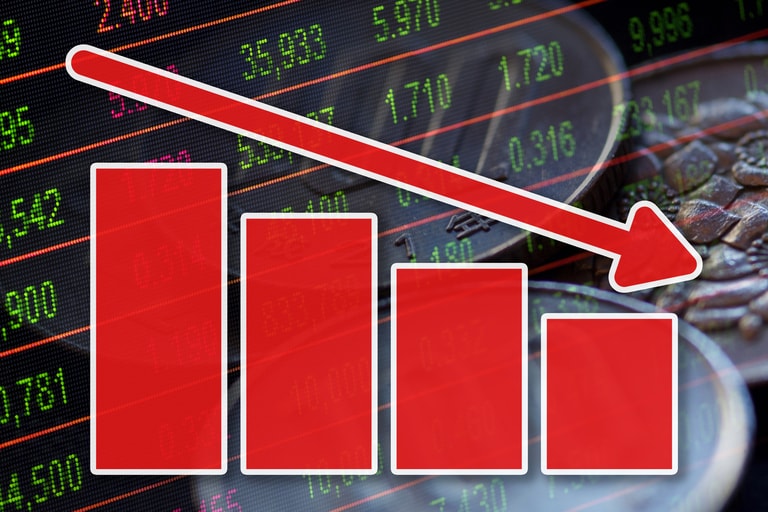There is a technology competition taking place behind the ongoing US-China trade war, and the fight to gain this tech supremacy will have a far-reaching impact, along with huge commercial and national security advantages.
The so-called fourth industrial revolution – represented by 5G communications, artificial intelligence and quantum computing – is emerging among the world’s top technology giants, most of which are based in the US and China.
Tech firms rising fast
Among the top 10 constituents of the MSCI World Index that represent over $43.4 trillion of market cap, 7 are technology companies. They are Apple, Microsoft, Amazon, Facebook, Alphabet (C and A) and Visa. Together with JP Morgan and Johnson & Johnson, these 9 US companies make up 12.5% of the MSCI world index. These ‘asset-light’ technology companies have gradually replaced the ‘asset-heavy’ petrochemical, real estate, heavy industry and traditional retail industries over the past decade, and are becoming the world’s most profitable, fast growing and promising organisations.
China takes on the US
And China is catching up quickly. Almost every FAANG company can find a Chinese counterpart corresponding to its business: Facebook versus Tencent’s Wechat; Apple versus Hwawei and Xiaomi; Amazon versus Alibaba and JD.COM; Netflix versus iQiyi; and Google versus Baidu to name a few.
A group of technology giants namely, Tencent, Alibaba, Baidu, Xiaomi, iQiyi and JD.COM, have emerged to compete with their US counterparts even in overseas markets. However, with the exception of Alibaba and Tencent, their market valuations remain far behind their US competitors. Tencent and Alibaba are dual-listed in Hong Kong and the US, with a market cap of $558 billion and $455 billion respectively.
China’s government-backed telecommunications giant Huawei has become the world’s leading 5G communications service provider. US fears of losing its competitive edge in this 5G race have intensified tensions between the two countries, prompting US president, Donald Trump, to impose various sanctions over Huawei in an attempt to contain its rise.
Technology development requires huge R&D spending, and China is also closing the gap in this respect. In 2018, China’s venture capital investment topped $100 billion, only shy of the US’s spending at $110 billion.
The competition is set to continue and perhaps intensify, as it’s about the future of technological advantage, value-chain redistribution, and highly paid jobs for the next generation. According to a survey conducted by IHS Markit, Apple makes 43% net profit from an iPhone, whereas the Chinese factory that manufactures and assembles the devices received only 3.6% of the total profit. This is clearly a huge difference, brought about by the division of labour which is now fuelling China’s ambition to climb up the value chain.
China’s talent pool is providing strong support for R&D, despite a much lower GDP per capita and spending power compared to the US. In 2016, China had 4 7 million graduates of science, technology, engineering and mathematics (STEM) majors. In contrast, the US had only 568,000 such graduates.
Tech giants make strong gains
In 2019, despite the mounting cloud of trade conflict and economic downturn, technology stocks still finished the year with astonishing gains. Among them, Apple (+ 77.8%), JD.com (+ 71.7%), Microsoft (+ 52.3%), Alibaba (+51.9) and Facebook (+ 51.3%) were among the top performers, far outperforming the global index. Tencent (+ 18.2%), NetEase (+ 31.5%), Amazon (+ 19.2%), and Intel (+ 22.1%) also recorded double-digit gains.
You can take a view on the fast-growing technology sector of China, with our China Tech share basket, which includes the hottest Chinese technology companies, such as Alibaba, JD.COM, Baidu, and NetEase. The advantages of trading on share baskets include diversification, reduced individual stock risk and lower transaction fees.
China Tech basket constituents
The China Tech share basket comprises 10 shares with exposure to the China technology sector, including:
ALIBABA
Alibaba Group is China’s largest-listed technology company, specialising in e-commerce, retail, internet, cloud computing, digital payment and technology. Its signature Singles’ Day shopping festival recorded 24-hour sales of RMB 268.4 billion ($38.4 billion) in 2019. Alibaba is dual-listed in both the US and Hong Kong, with a market cap of $558 (Dec 2019), and a P/E ratio of 43 times.
BAIDU
Baidu is a technology company specialising in internet-related service products and artificial intelligence (AI). Baidu’s search engine is currently the second largest in the world, and holds a 76% market share in China’s search engine market. It also provides a mapping service via Baidu Maps.
NETEASE
NetEase provides online services centred on content, community, e-commerce and mobile games. It’s one of the largest internet and video gaming companies in the world.
IQIYI
iQiyi is an online video and streaming platform with over 500 million monthly active users. iQiyi also produces original content and dramas. It was founded by Baidu.
See all
US-China top-listed tech companies comparison
Why trade on the China Tech basket?
There are a number of reasons for and against the potential of future technologies, and specifically for China tech.
THE BULLISH STANCE
Technologies such as 5G communications, artificial intelligence and quantum computing represent the future of industry
Asset-light technology organisations are replacing the traditional asset-heavy firms in industries like petrochemical, real estate, heavy industry and traditional retail
Tech firms are fast-becoming the world's most profitable, fast-growing organisations, with huge and almost limitless potential
Vast sums of money are being spent in the tech landscape – the US spent $110 billion on venture capital investment in 2018, while China spent $100 billion
In 2019, technology stocks ended the year with huge gains, notably Apple (+ 77.8%), JD.com (+ 71.7%), Microsoft (+ 52.3%), Alibaba (+51.9) and Facebook (+ 51 3%)
THE BEARISH VIEW
As the tech battle between US and China intensifies, there is potential for trade sanctions as these powerful countries, in particular, compete against each other in the technology race
If a coronavirus-fuelled recession hits the global economy, this could affect research funding, supressing the potential for development
Trade our new Share Baskets now
Get exposure to trending industry themes with CMC share baskets:
Gaming
Mobile Payments
Renewable Energy
5G
Trade now
Finding out more about the China Tech basket
View product details, live charts and related articles on our China Tech page.
Disclaimer: CMC Markets is an execution-only service provider. The material (whether or not it states any opinions) is for general information purposes only, and does not take into account your personal circumstances or objectives. Nothing in this material is (or should be considered to be) financial, investment or other advice on which reliance should be placed. No opinion given in the material constitutes a recommendation by CMC Markets or the author that any particular investment, security, transaction or investment strategy is suitable for any specific person. The material has not been prepared in accordance with legal requirements designed to promote the independence of investment research. Although we are not specifically prevented from dealing before providing this material, we do not seek to take advantage of the material prior to its dissemination.







